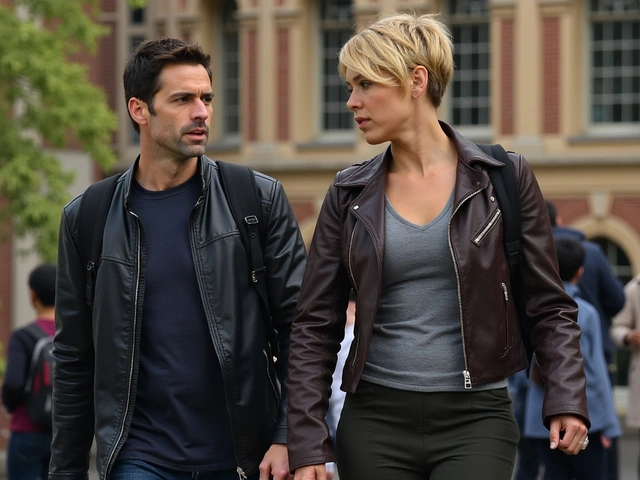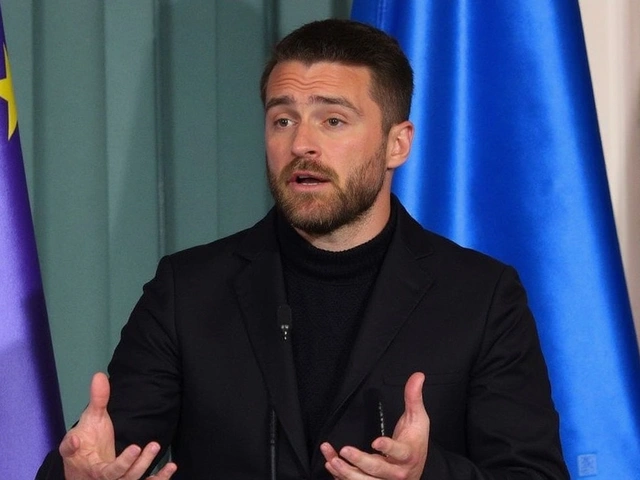Major Prostitution Ring Bust in Ghana: Key Suspect Arrested
In a concerted effort to combat the scourge of human trafficking and prostitution, Ghanaian authorities have arrested an individual believed to be a kingpin in a large-scale human trafficking operation. This recent development signifies a crucial step in the fight against organized crime, providing a glimmer of hope to many who have been entrapped in this vicious cycle of exploitation. The arrest has led to the Nigerian Commission in Ghana stepping in to take custody of several victims, primarily young Nigerian girls, who were subjected to horrific conditions.
A Closer Look at the Arrest and the Operation
Details surrounding the actual operation remain scarce. However, the information that has been disclosed paints a grim picture. The girls were apparently held captive and forced into prostitution by the suspect, whose arrest could unravel a much larger network of traffickers. The Ghanaian authorities carried out a meticulous investigation leading to the arrest. Preliminary reports suggest that the criminal enterprise extended beyond Ghana’s borders, hinting at a transnational operation where young women were trafficked from Nigeria and other neighboring countries.
According to sources close to the investigation, the victims were recruited under false pretenses, often with promises of employment and a better life. One can only imagine the horrors they faced upon arrival, as the stark reality set in - their newfound ‘jobs’ were, in fact, acts of enforced prostitution. The impact on their physical and mental well-being is unimaginable, and experts stress the importance of providing comprehensive rehabilitation and support for these young women.
The Role of the Nigerian Commission in Ghana
The active involvement of the Nigerian Commission in Ghana emphasizes the importance of international cooperation in tackling human trafficking. Upon receiving reports of the suspected prostitution ring, the commission collaborated closely with Ghanaian law enforcement agencies to ensure the safety and protection of the victims. Post-rescue, it has become imperative to provide these girls with immediate care and psychological support, easing their transition back to normalcy.
This collaboration highlights the significance of diplomatic channels in addressing such grave issues. It stresses the need for strengthening cross-border operations and establishing effective communication amongst nations to prevent these heinous crimes.
The Path Forward: Rehabilitation and Justice
The immediate focus for authorities and aid organizations is the holistic rehabilitation of the rescued girls. Experts from various fields contend that without adequate mental health support, medical care, and vocational training, the victims could face severe long-term consequences. Programs designed to aid in their recovery are essential to ensure they can reintegrate into society and maintain a semblance of normalcy.
Additionally, the criminal justice system must now focus on thorough investigation and prosecution. Traffickers and those complicit in the prostitution ring should face stringent legal consequences. Through this, a clear message needs to be sent out that such exploitation will not be tolerated. It is imperative to dismantle trafficking networks and offer young women protection through various social programs and policy implementations.
Insights into Human Trafficking and Prostitution
Human trafficking remains a despicable issue impacting millions globally. According to international studies, it accounts for billions in profits for criminal enterprises. The nexus of prostitution and trafficking is deeply intertwined. Victims, mainly women and children, are coerced or duped into leaving their homes, with false promises leading them into nightmarish conditions. Once entrapped in a foreign land, their options for escape diminish significantly.
Therefore, the arrest of key figures in these operations is crucial. It debilitates their operations and offers an opportunity for law enforcement agencies to get to the roots of these networks. Statistically, the majority of victims are illegally transported from developing nations, sparking an urgent need for those nations to adopt more vigilant practices and protective measures.
The Importance of Continued Vigilance
The fight against human trafficking and prostitution is far from over. This arrest signifies a positive stride, but it is merely one step in an ongoing battle. The international community needs to remain vigilant. Critics argue that without sustained effort, the successes seen in operations like those in Ghana might be short-lived. Continuous awareness campaigns, educational programs, and stringent border controls are imperative to keep trafficking in check.
Communities must also be proactive. Leaders and citizens need to work together to identify and report suspicious activities. Grassroots movements, combined with international efforts, create a holistic approach to ending these crimes. By fostering a culture of caution and vigilance, the likelihood of children and women falling prey to such schemes decreases significantly.
Concluding Thoughts
The arrest of the alleged kingpin in Ghana represents a poignant moment in the fight against human trafficking and prostitution. It underscores the critical role of international cooperation and the relentless pursuit by authorities to eradicate such vile crimes. As the victims begin the arduous journey of rehabilitation, there lies hope that with continual efforts, vigilance, and support, such human atrocities can be drastically reduced, if not entirely eradicated.







MD Imran Ansari
June 12, 2024 AT 18:36Hey folks, just wanted to share a quick rundown on how trafficking rings typically operate and what resources are out there for survivors. 🚨 These networks often use bogus job ads or “marriage” promises to lure young women across borders, then lock them in brothels or forced labor sites. 🌐 The Ghanaian police’s recent bust is a prime example of coordinated intelligence work – they tracked communications, seized cash, and rescued the victims before they could be moved deeper into the trade. 🕵️♂️ If you or someone you know is at risk, the UN’s TIP (Trafficking in Persons) hotline and local NGOs like the International Justice Mission provide 24‑hour helplines and safe houses. 📞💡 Rehabilitation isn’t just about medical aid; it also includes trauma counseling, vocational training, and legal assistance to help survivors rebuild their lives. 🛠️ Remember, reporting suspicious activity to authorities can break the chain before it spreads further. 🙏 Stay vigilant and spread the word! 🌟
walaal sanjay
June 12, 2024 AT 19:26THIS IS EXACTLY WHY WE NEED TO STAND UP FOR OUR NATIONS!! Ghana’s authorities finally took a stand, but the real issue lies in the sheer *laziness* of neighboring governments that allow these criminals to thrive! If we don’t crank up the border patrols and enforce ZERO‑TOLERANCE policies, the next ring will be even bigger!!!!
Umesh Nair
June 12, 2024 AT 20:16i cant beleive everyone is actin like this is the end all be all.... ths is just media hype n dont even suss out the root cause. many ppl think im a jerk becuz i question the hype but i cant keep silent. its not just ghana, it’s a global game and we need real data not just tweets!!!
kishore varma
June 12, 2024 AT 21:22Wow, that's a huge win! 🙌
Kashish Narula
June 12, 2024 AT 22:46It’s truly encouraging to see authorities take decisive action, and I hope this momentum carries forward with compassion and solid support for the rescued girls. While celebrating the arrest, we must also remember the long road ahead for rehabilitation and the need for sustained funding for counseling and education. Let’s keep the conversation focused on healing and prevention rather than sensational headlines.
smaily PAtel
June 13, 2024 AT 00:26First, it’s essential to understand that human trafficking is a multi‑layered crime that intertwines economic disparity, weak legal frameworks, and transnational organized crime syndicates. Second, data from the UNODC indicates that over 70% of trafficked persons are moved across borders, which means cooperation between nations is non‑negotiable. Third, the legal definition of trafficking often includes the “means” of deception, coercion, and abuse of power, which are difficult to prove without extensive forensic investigation. Fourth, Ghana’s recent operation demonstrates the effectiveness of joint task forces that combine police intelligence, immigration monitoring, and civil‑society reporting mechanisms. Fifth, victim identification protocols must be culturally sensitive, as many survivors may hide trauma due to stigma within their communities. Sixth, a holistic rehabilitation plan should incorporate immediate medical care, long‑term psychological therapy, and vocational training to prevent re‑victimization. Seventh, NGOs play a pivotal role in bridging the gap between state services and survivors, offering legal counsel and safe shelter. Eighth, funding for anti‑trafficking initiatives often comes from international donors, and sustainability requires transparent allocation and measurable outcomes. Ninth, public awareness campaigns should leverage social media, radio, and community workshops to educate potential victims about recruitment tactics. Tenth, schools can incorporate curricula that teach students about consent, rights, and the dangers of false job offers. Eleventh, border control agencies need advanced screening tools, such as biometric verification, to detect fraudulent travel documents. Twelfth, law enforcement training must include trauma‑informed interviewing techniques to avoid re‑traumatizing survivors. Thirteenth, prosecutors require specialized units to handle complex trafficking cases, ensuring that evidence is preserved and chains of command are exposed. Fourteenth, sentencing guidelines should reflect the severity of the crime, with mandatory minimums for repeat offenders. Finally, continuous monitoring and evaluation of anti‑trafficking programs are critical to adapt strategies based on emerging trends and to close loopholes that traffickers exploit.